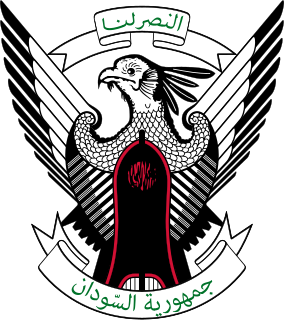 W
WThe Sudanese Revolution was a major shift of political power in Sudan that started with street protests throughout Sudan on 19 December 2018 and continued with sustained civil disobedience for about eight months, during which the 11 April 2019 Sudanese coup d'état deposed President Omar al-Bashir after thirty years in power, 3 June Khartoum massacre took place under the leadership of the Transitional Military Council (TMC) that replaced al-Bashir, and in July and August 2019 the TMC and the Forces of Freedom and Change alliance (FFC) signed a Political Agreement and a Draft Constitutional Declaration legally defining a planned 39-month phase of transitional state institutions and procedures to return Sudan to a civilian democracy. In August and September 2019, the TMC formally transferred executive power to a mixed military–civilian collective head of state, the Sovereignty Council of Sudan, and to a civilian prime minister, Abdalla Hamdok and a mostly civilian cabinet, while judicial power was transferred to Nemat Abdullah Khair, Sudan's first female Chief Justice. This article mainly covers this eight-month period.
 W
WThe 2019–20 Sudanese protests consisted of street protests in Sudan starting from mid-September 2019 during the 2019 Sudanese transition to democracy, on issues that included the nomination of a new Chief Justice of Sudan and Attorney-General, killings of civilians by the Rapid Support Forces (RSF), the toxic effects of cyanide and mercury from gold mining in Northern state and South Kordofan, protests against a state governor in el-Gadarif and against show trials of Sudanese Professionals Association (SPA) coordinators, and for officials of the previous government to be dismissed in Red Sea, White Nile, and South Darfur. These protests followed the sustained street protests and civil disobedience of the Sudanese Revolution and the early September 2019 transfer of executive power to the Sovereignty Council of Sudan, civilian prime minister Abdalla Hamdok and his cabinet of ministers. Hamdok described the 39-month transitional period as being defined by the aims of the revolution.
 W
WThe 2019 Sudanese coup d'état took place on the late afternoon of 11 April 2019, when Sudanese President Omar al-Bashir was overthrown as Sudanese President by the Sudanese army after popular protests demanded his departure. At that time the army led by Ahmed Awad Ibn Auf, toppled the government and National Legislature and declared a state of emergency in the country for a period of 3 months, followed by a transitional period of two years before an agreement was reached later.
 W
WGeneral elections are scheduled to be held in Sudan in late 2022 as part of the transition to democracy deal that was reached in July and August 2019. A constitutional convention is expected to be held before the end of the transitional period to draft a permanent constitution that should define the form of government and electoral system.
 W
WThe eleven-member Sovereignty Council of Sudan is the collective head of state of Sudan, for 39 months starting 20 August 2019, created by the August 2019 Draft Constitutional Declaration. Under Article 10.(b) of the Draft Constitutional Declaration, the Council is composed of five civilians chosen by the Forces of Freedom and Change alliance (FFC), five military representatives chosen by the Transitional Military Council (TMC), and a civilian selected by agreement between the FFC and TMC. The chair for the first 21 months is a military member, Abdel Fattah al-Burhan, and for the remaining 18 months the chair is to be a civilian member, under Article 10.(c). The Sovereignty Council is mostly male, with only two female members: Aisha Musa el-Said and Raja Nicola. Under Article 19 of the Draft Constitutional Declaration, the eleven Sovereignty Council members are ineligible to run in the election scheduled to follow the transition period. The 39-month transitional period is scheduled to end in November 2022.
 W
WThe 2019–2022 Sudanese transition to democracy is an ongoing democratic transition in Sudan that began in July 2019.
 W
WThe Transitional Legislative Council of Sudan,, is an interim legislative body to be formed in Sudan as part of the 2019–2022 Sudanese transition to democracy.